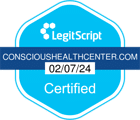Your heart suddenly feels as though it is about to burst through your chest. Your vision has begun to blur, and you can’t seem to catch your breath. You are overcome with the fear that something is seriously wrong – but no one around you seems to notice what’s happening to you. Then, within a few minutes, the sensation ends as abruptly as it began. You’ve just had a silent panic attack.
What Are Silent Panic Attacks?
To understand what a silent panic attack is, it can be helpful to begin with a brief review of what a “typical” panic attack looks like.
Panic attacks are highly disturbing experiences that can include both physical and psychological distress. When a person is in the midst of a panic attack, they may become overwhelmed by an intense fear that they are choking, about to have a heart attack, or are otherwise in grave danger.
The outward signs of a panic attack can include excessive perspiration, shakiness, impaired balance and coordination, and cold or clammy hands. But many people who have panic attacks don’t display obvious signs of what they are going through. These cases are referred to as silent panic attacks.
A silent panic attack can be as painful and frightening as a “typical” panic attack. The primary difference between the two is that when a person is having a silent panic attack, others may have no idea of what they are experiencing.
Signs and Symptoms
The following are examples of common signs and symptoms of a silent panic attack:
- Depersonalization and/or derealization: This are the sensations that you have become detached from your thoughts, feelings, body, or surroundings. You may feel as though you are observing yourself from a distance, or that your environment has taken on an otherworldly appearance (such as being drained of color or having skewed perspectives).
- Heart palpitations: A racing heart rate is a common symptom of a silent panic attack. The intensity of this symptom may become so severe that you believe you are either on the precipice of a heart attack or actually experiencing one.
- Breathing difficulties: During a silent panic attack, you may have the sensation of being choked, smothered, or unable to catch your breath. This symptom often occurs in combination with heart palpitations, which can exacerbate your fears that you are having a medical crisis.
- Powerful sense of worry or dread: These types of negative emotions are at the core of silent panic attacks. In some cases, they may be related to the physical symptoms you are experiencing – but sometimes they may not have any obvious connection to a current or future event. You simply become overwhelmed by the unshakeable feeling that something terrible is about to happen.
Causes of Silent Panic Attacks
There is no single cause of silent panic attacks, but mental health experts have identified a variety of factors that can influence a person’s risk for these types of events, including:
- Family history of mental illness
- Personal history of abuse, neglect, or other adverse childhood experiences (ACEs)
- Exposure to overwhelming stress or pressure
- Significant life changes, such as starting a family or losing a loved one
- Insufficient coping skills
- Certain genetic variations
- Heavy smoking and excessive caffeine use
Some of these risk factors can be addressed via behavioral changes, while others are beyond your ability to influence. However, as we will discuss in the next section, there are steps you can take to limit your risk of future silent panic attacks and curtail their negative impact if they do occur.
Can Silent Panic Attacks Be Treated?
There is no doubt that silent panic attacks can be extremely distressing. But if you or someone that you care about has been suffering from these types of attacks, please know that they are treatable. When you receive the type and level of care that matches your needs and goals, you can experience true relief and achieve a much better quality of life.
Effective treatment for silent panic attacks begins with a thorough assessment to ensure that your treatment team understands the full scope of your needs. This includes exploring how you have been impacted by your struggles with panic attacks, as well as determining if you are also being affected by any co-occurring physical or mental health concerns.
The information that your treatment team gathers during your assessment will allow them to design a customized plan for you. Examples of the elements that may be incorporated into this plan include:
- Prescription medication
- Individual and group therapy
- Cognitive behavioral therapy (CBT)
- Educational sessions
- Peer support
Treatment may not completely eliminate silent panic attacks from your life, but it can minimize their disruption. Medication can ease the intensity of certain symptoms, while therapy and education can help you learn to identify the onset of a silent panic attack and develop appropriate skills for managing symptoms that aren’t alleviated by medication.
Contact Our Treatment Center for Panic Disorders in Los Angeles, California
Conscious Health Center is a trusted source of personalized outpatient treatment for adults in the Los Angeles area whose lives have been disrupted by panic attacks (silent or otherwise) and other mental health concerns.
Our panic disorder programming features a dynamic array of services, including both time-tested techniques and non-traditional modalities, with the goal of empowering each person to overcome the obstacles that have been preventing them from living a healthier and more hopeful life.
Throughout your time in our care, you will have the opportunity to work in close collaboration with a team of highly skilled and deeply compassionate professionals. These dedicated caregivers will take the time to get to know you as a unique individual so that we can be sure we are providing the focused services that will best prepare you for long-term success.
To learn more about how we can help, or to schedule a free assessment, please visit our Contact Us page or call our center today.



